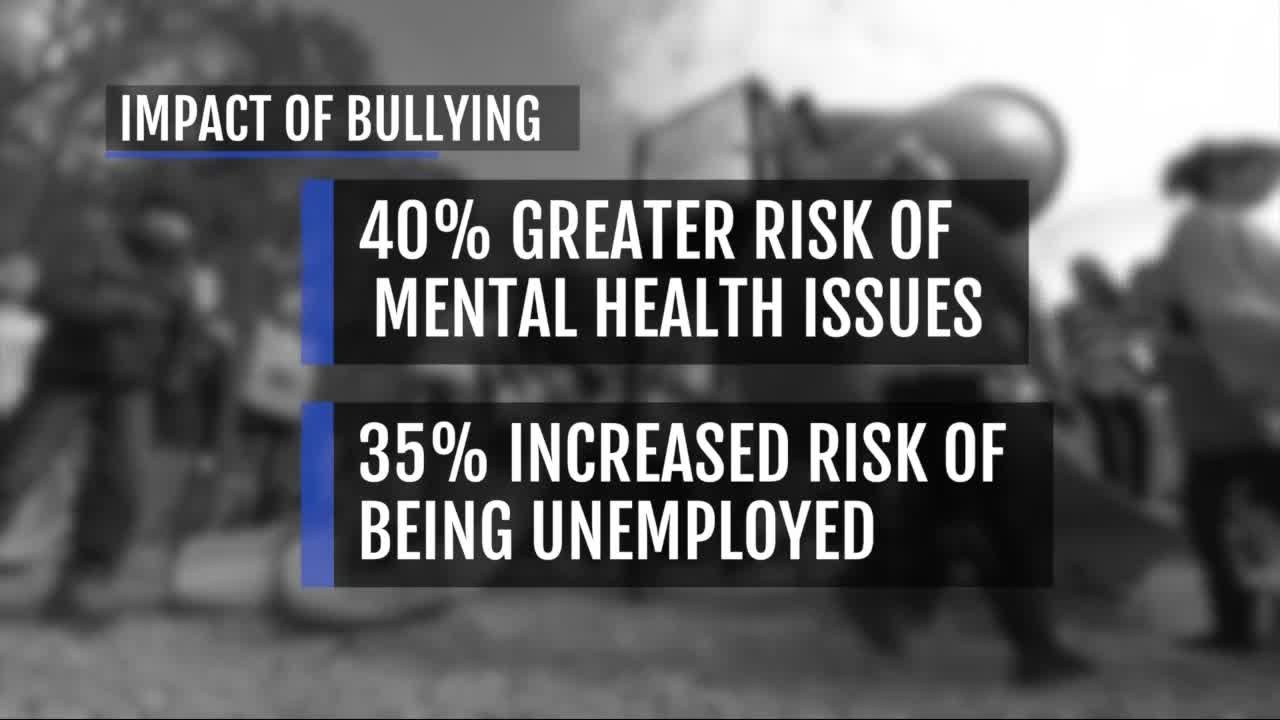(WXY) — New research has found that children who are bullied at school can struggle with lifelong consequences. Victims face a higher risk of mental health problems as well as unemployment.
This new study followed over 7,000 teenagers in the United Kingdom who were interviewed multiple times over several years.
Here’s what the researchers found. By age 25, victims of teenage bullying faced a 40% greater risk of mental health issues like low self-esteem, depression and anxiety. They could also struggle to find a job. In fact, they had a 35% increased risk of being unemployed at the age of 25. And any teen who faced violent bullying or had frequent encounters suffered the worse consequences years later.
Some of the bullying examples the researchers looked at include name calling, being excluded from peer groups, having personal items stolen, being threatened or experiencing some sort of violence. Teen girls were more likely to experience psychological bullying while teen boys were more likely to experience violent bullying.
It’s important that parents do not take the attitude that bullying can “toughen kids up” as this study shows the long-lasting impact it can have. So here are my prescriptions on how to help kids:
- You can’t bullyproof your child but you can help them develop healthy self-esteem and resilience. These positive skills can help to lessen bullying’s negative consequences.
- Discuss bullying with your kids. Let them know this type of behavior is not acceptable from anyone.
- Make sure your child knows that if they’re ever bullied, you’re there for them, and will help them figure out what to do.
- Teach your child how to de-escalate a conflict. They can tell the bully to stop using a calm voice, they can walk away, or find an adult who can help. It’s also really important to be a friend to someone who is being bullied, so they know someone cares and they’re not alone.



